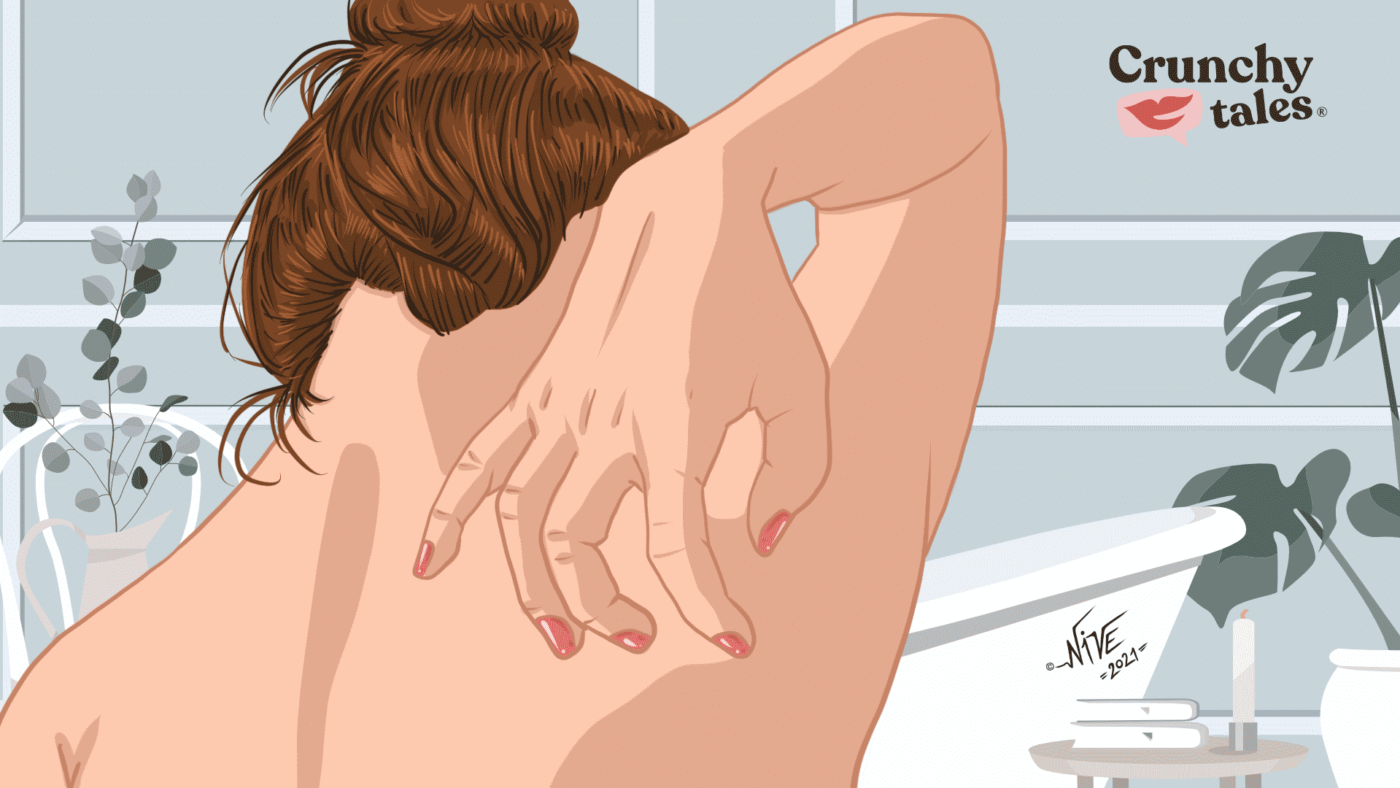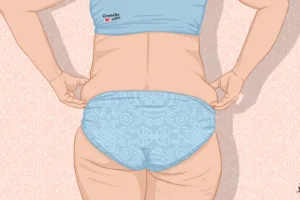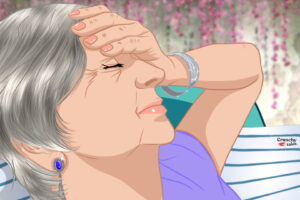What You Can Do About Itchy Skin Right Now
Suffering from itchy skin in your 50s is more common than you think. Unless you are affected by a particular skin condition, stress, allergies, medications, maybe amongst the main causes. But have you ever thought it can be an irritating symptom of menopause, too?
The skin’s ability to retain water declines with age and as the level of oestrogen in our body falls, so does the amount of collagen and skin oils produced. Collagen is generally lost at an increasing rate from the onset of menopause. In the initial 5 years, a woman may lose as much as 30%. The rate of loss then declines again to 2% annually in post-menopausal women. This causes our body to become dry and irritated: you might start to notice that on the elbows and the T-zone, which includes the forehead, nose, and chin. However, dry patches can appear anywhere, including our chest and back, arms, legs, and even genitals.
According to Dr Kenneth Arndt, a dermatologist and former medical editor of the Harvard Special Health Report Skin Care and Repair, as we grow older: “The skin barrier doesn’t work as well as it used to, and things that may not have irritated you before may now be absorbed in the skin and cause itching. The skin also develops a somewhat impaired immune response, a reduction in fat and blood flow, and altered sensory perception, making it more prone to itching.”
Fortunately, easing the itch and combating the dry skin associated with menopause is largely in our hands.
How do I treat dry skin?
Keeping your skin moisturised is one of the most effective ways of relieving itchy skin, as well as drinking plenty of water. To help prevent itching, The American Academy Of Dermatology recommends the following tips:
- Bathe with lukewarm – not hot – water. Try to limit your bath or shower to just 10 minutes as soaking your skin in hot water for extended periods of time can strip your skin of its natural oils.
- Try to use “fragrance-free” lotions, soaps and detergents to minimize irritation. Be wary of products labelled “unscented,” as they might still have chemicals that can irritate your skin.
- Apply medications, as directed by your dermatologist, before moisturizing.
- Wear loose-fitting, cotton clothes. Wool and other rough-feeling fabrics can irritate your skin, causing intense itching, especially in the summertime.
- Avoid extreme temperature changes. Maintain a relatively cool, neutral humidity environment in your house. Use a humidifier in combination with your central heating during winter.
- Reduce stress, as it can make your itch worse.
Amongst other good habits, you may want to consider also reducing caffeine, alcohol and nicotine levels as they contribute to dehydration. Increasing your Omega 3 fatty acid intake by consuming salmon, sardines, eggs, flaxseed, walnuts and soy, will also help.
What natural remedies could help me?
Over-the-counter lotions, gels, and creams with ingredients like menthol and aloe vera are great natural remedies to spot-treat itchy skin. Bathing with Baking soda or Oatmeal can help soothe those irritated areas of your body, too. The first option reduces inflammation by neutralizing acids on the skin’s surface, thereby balancing the pH, as well as acting as a natural antiseptic. The second one has anti-inflammatory and antioxidant qualities that can rehydrate your skin.
“If the itching continues despite these measures you may find antihistamines will bring some relief – although these should not be taken on an ongoing basis. Another option is to talk to your GP or menopause specialist about taking HRT to rebalance your hormones“, says Dr Stephanie Goodwin a London-based GP and menopause specialist.
Like this article? Support Us or Sign up to our newsletter to get more articles like this delivered straight to your inbox!





